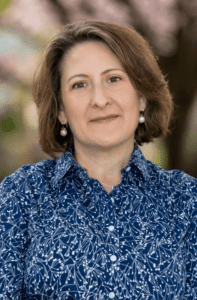The Future of Mediation. Member Spotlight: Janet Chance
Based in Saratoga, California, Janet Chance is an experienced mediator who is passionate about helping repair relationships and helping people move on from conflict. She founded Chance Conflict Consulting almost a year ago, through which she has continued her work as a conflict resolver through mediation, facilitation, and conflict coaching. She loves mediation for its ability to reduce animosity among conflicting parties and enjoys being able to serve as a neutral party in the process of dispute resolution. Janet’s favorite thing about facilitation is creating an environment where people feel safe to discuss controversial topics.
The Road to Mediation
 Janet had multiple careers before her start in mediation. She received an undergraduate degree in electrical engineering, following which she worked as an engineer in a controls company for eleven years. From there, she moved to Maryland and worked as a patent examiner at the U.S. Patent and Trademark Office. She moved to California in 2003, where she became a patent agent, writing patent applications at various law firms. Eventually, she left work to focus on and be an advocate for her son, who has Asperger’s syndrome.
Janet had multiple careers before her start in mediation. She received an undergraduate degree in electrical engineering, following which she worked as an engineer in a controls company for eleven years. From there, she moved to Maryland and worked as a patent examiner at the U.S. Patent and Trademark Office. She moved to California in 2003, where she became a patent agent, writing patent applications at various law firms. Eventually, she left work to focus on and be an advocate for her son, who has Asperger’s syndrome.
After leaving work, she took a mediation class and began mediating for Santa Clara County on a volunteer basis. In this role, she mediated civil harassment, conservatorship, and probate cases, facilitated victim-offender mediation, and did some small claims and community work. This, Janet says, gave her a lot of experience in mediation, which she has been able to carry with her since. When the COVID-19 pandemic hit, she was no longer able to participate in in-person mediation, which prompted her to start her mediation practice, Chance Conflict Consulting, so that she could continue mediating. Janet also has a master’s in dispute resolution from Pepperdine University and is involved with a number of non-profit organizations, including MBBI and Days of Dialogue. She recently took the CINERGY conflict coaching course and hopes to become certified by the end of the year.
MBBI
Janet discovered MBBI during her time at Pepperdine, seeing it on LinkedIn as an organization that some of her professors and classmates were involved with. She took a reflective structured dialogue class through MBBI, which served as her introduction to the organization. Janet also attended a Women in Leadership session conducted by Joan Goldsmith and highlights MBBI’s classes and programs as one of her favorite aspects of the organization. She has now been a member for almost a year and is involved in the Police Community Relations Working Group, which works to improve relations between communities and their police forces. The issue of police-community relations is more relevant today than ever, and Janet is “really excited about being part of this solution as opposed to taking sides.” She says that this group has allowed her to feel more a part of MBBI, and has given her a means of contributing.
Mending Relationships
Janet loves being a mediator because it means she can deescalate tensions and help people come to a resolution to put the dispute behind them. She says that it suits her well to not “have any stake in the game, yet I have to use my judgment and quick thinking and be on my toes all the time to guide the conversation to resolution.” Janet enjoys being a neutral party and helping to bring peace to conflictual scenarios, which can have a physical and psychological effect on people. Furthermore, she loves mediation as an alternative to more adversarial methods of dispute resolution. “Not that everyone’s happy after our mediation but I like that there’s no losers,” Janet says. “There’s not somebody that walks away completely disgruntled or who a judge has decided has just lost.” She explains that mediation has the potential to improve relationships, or at least not damage them further, which the court is so prone to do. Mediation allows people to come together to find a solution, rather than pitting them against one another. Janet especially loves being able to help families who might be arguing over the care of a family member, which she did often while working for Santa Clara county. She finds it extremely rewarding to help families keep open communication, come to an agreement, and prevent them from being torn apart.
The Future of Mediation
Since the beginning of the COVID-19 pandemic, much mediation has been taking place online. Janet predicts that mediation will continue at least partly online for the foreseeable future because it eliminates the need for travel and makes cross-country and international mediation more accessible. She thinks that mediation is become increasingly well-known as an option in disputes but would love there to be more discourse about and credit is given to mediators in conflicts. ‘This can be done, especially on the international stage through acknowledgments of the presence of mediators.” Janet also wishes that mediation were more accessible to a wider variety of communities, something that could also come with the expansion of public knowledge about and use of mediation. Mediation, she says, is a crucial line of work, and will never cease to be useful to people everywhere. “As long as there’s people of differing backgrounds, ideas, and influence,” Janet says, “there’s going to be a need for mediation. So I see it as becoming more and more needed, and hopefully more and more known.”
Article by Tess Hargarten, MBBI Writer
